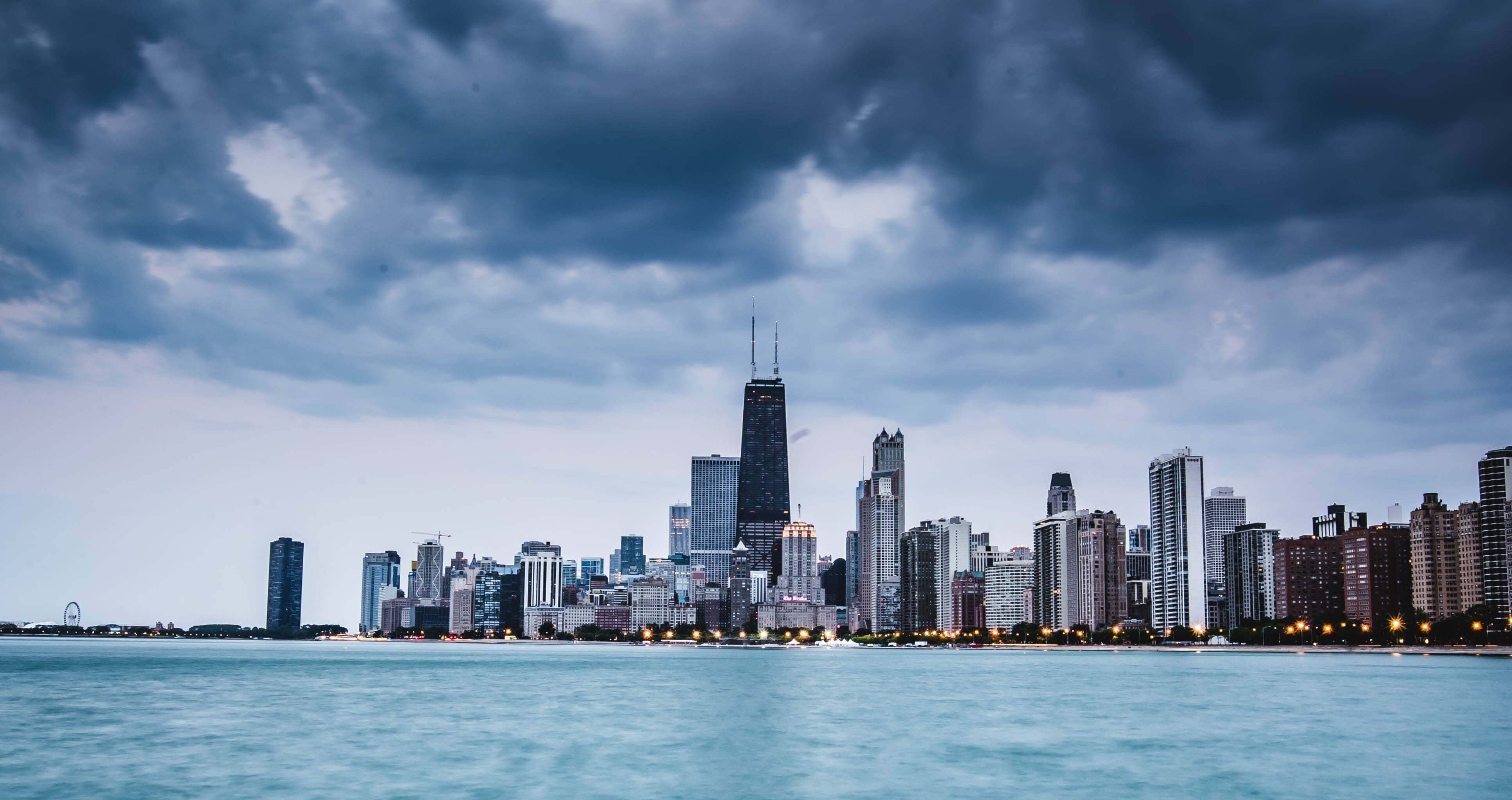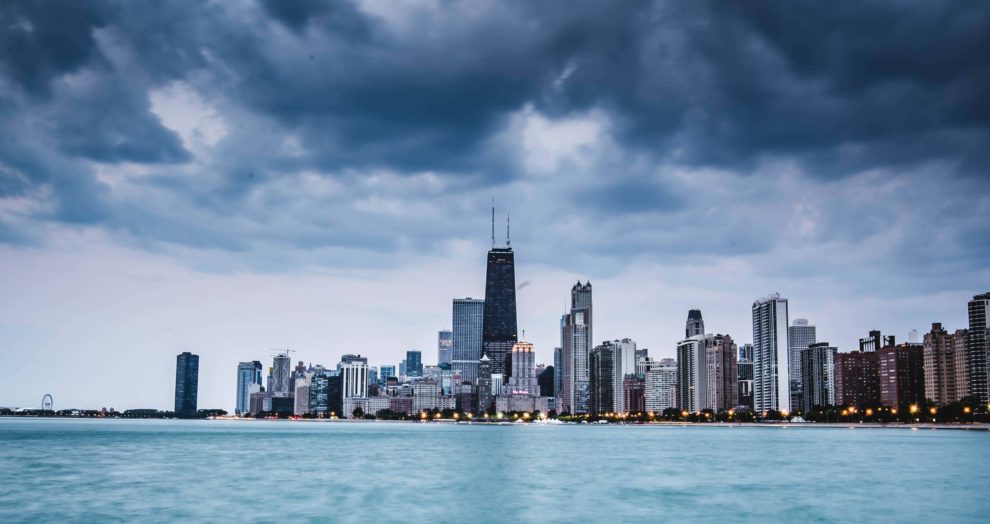Chicago, across many dimensions, is a city that’s second to none. With apologies to Milwaukee, Detroit, Toronto, and those averse to puns about the Great Lakes, Chicago’s urban lakefront is truly superior, as is the restaurant scene. A crown on the nation’s breadbasket, it’s through the city’s exchanges that the world trades its agricultural commodities and financial derivative products, like options and swaps.
Subscribe to the Crunchbase Daily
But for a city whose latest fortune was born on the back of futures contracts, its startup founders lag behind others in contracting capital to build the future. However, like the level of Lake Michigan itself, this too is on the rise.
According to Crunchbase data, startups in the greater Chicago metro area (which also includes places like Evanston and Naperville) have raised nearly $850 million in reported funding across nearly 90 VC rounds, year to date. Keep in mind that this is based on analysis of private-market data, which especially at seed and early stages is subject to reporting delays. Actual deal and dollar volumes are likely higher than what’s reported here, but this is enough to indicate, directionally, where Chicago’s startup ecosystem is at right now.
Dollar volume is, generally, on the rise. And that’s because Chicago deals are growing larger. For example: in 2018, the average early stage round (Series A or Series B, with some subsets of other round types too) topped out at roughly $6.5 million across 104 rounds. So far in 2019, the 36 reported early-stage rounds average out to $10.9 million. This doesn’t include the Cameo round, for which dollar amounts haven’t been publicly disclosed. The biggest early-stage deals so far include additive manufacturing firm Fast Radius’s $48 million Series B, car insurance marketplace company Clearcover’s $43 million Series B, and a $33 million Series A round for Sustainable Bioproducts, which uses specialized organisms and fermentation processes to produce nutritious proteins.
Similarly, at late stage (Series C and later), average deal size is up from $40 million in 2018 to $63 million in 2019 year-to-date, though cancer analytics company Tempus’s $200 million Series F round from May is primarily responsible for driving up this year’s late-stage mean.
Though reporting delays and the stealthy nature of seed-stage startups makes it difficult to quantify activity closest to the entrepreneurial metal, it certainly feels as though things are picking up at this end of the venture life cycle as well. In the past quarter, several Chicago-based startups picked up seed funding; these include: practice management software provider Blueprint, code-less app builder Draftbit, travel inspiration and planning platform TripScout, at-home dialysis startup Simergent, new nail salon experience Ezza Nails, restaurant repair service 86 Repairs, and mobile healthcare company Lytic, among others which have raised seed funding since April 1.
All’s not so rosy in Chicagoland tech though.
One of Chicago’s highest-flying unicorns came crashing back to earth in early May. Outcome Health, which makes money by displaying pharmaceutical advertisements in physician waiting rooms, completed an extensive recapitalization led by middle-market PE firm Littlejon & Co. According to Crain’s Chicago Business’s sources, the transaction involved less than $100 million. The valuation of Outcome Health following the re-cap wasn’t disclosed, though Crain’s also reports that Littlejohn is now a majority shareholder in Outcome Health, indicating its share value declined precipitously from its last financing.
Outcome Health raised $487.5 million at a $5 billion pre-money valuation in late May 2017. Goldman Sachs led the deal, in which Prudence Holdings, Google growth investment arm CapitalG, and Pritzker Group Venture Capital (a firm founded by current Illinois governor JB Pritzker) also participated, according to Crunchbase data. However, a lawsuit filed against Outcome Health in November 2017 reveals other investors, including Norwest Venture Partners and Laurene Powell Jobs’s Emerson Collective, among the ad firm’s backers.
At issue in that lawsuit? Fraud, and the fate of $225 million held in a subsidiary of Outcome Health called Gravitas Holdings. The cash was ostensibly earmarked for direct payout to Outcome’s founders, Rishi Shah and Shradha Agarwal, who led the company while it allegedly misrepresented the number of ad impressions it was delivering in patient waiting rooms. Reports of said misrepresentation prompted a fraud investigation by the U.S. Department of Justice and, ultimately, the lawsuit seeking to prevent the capital transfer. In January 2018, Shah and Agarwal settled the lawsuit and agreed to use $159 million of the $225 million held by Gravitas Holdings to reinvest in the business and pay down its debts, according to the Chicago Tribune. The settlement allowed Outcome to disburse remaining capital out of Gravitas Holdings, presumably back to Shah and Agarwal, who left their leadership roles at the company at that time. As part of the recapitalization event announced in May, Shah and Agarwal are out as stakeholders in the company, according to reporting from Crain’s Chicago Business.
The reputation of Chicago’s startup ecosystem will take time and a long string of successes to make up for such a high-profile flameout and fraud scandal.
Despite being the third largest city by population, Chicago ranks ninth in known venture dollar volume (behind San Diego, Seattle, and Austin) and sixth (behind Boston, Los Angeles, and Seattle) in venture deal volume, year to date. San Francisco and NYC, respectively, retain the top two spots for both metrics.
There’s a lot of progress to be made, and Chicagoans are known for building. Here’s to hoping the third decade of the 21st century shapes up better for Chicago’s startup scene, and with fewer bad apples to boot.

Stay up to date with recent funding rounds, acquisitions, and more with the Crunchbase Daily.










![Illustration of pandemic pet pampering. [Dom Guzman]](https://news.crunchbase.com/wp-content/uploads/2021/03/Pets-2-300x168.jpg)

67.1K Followers